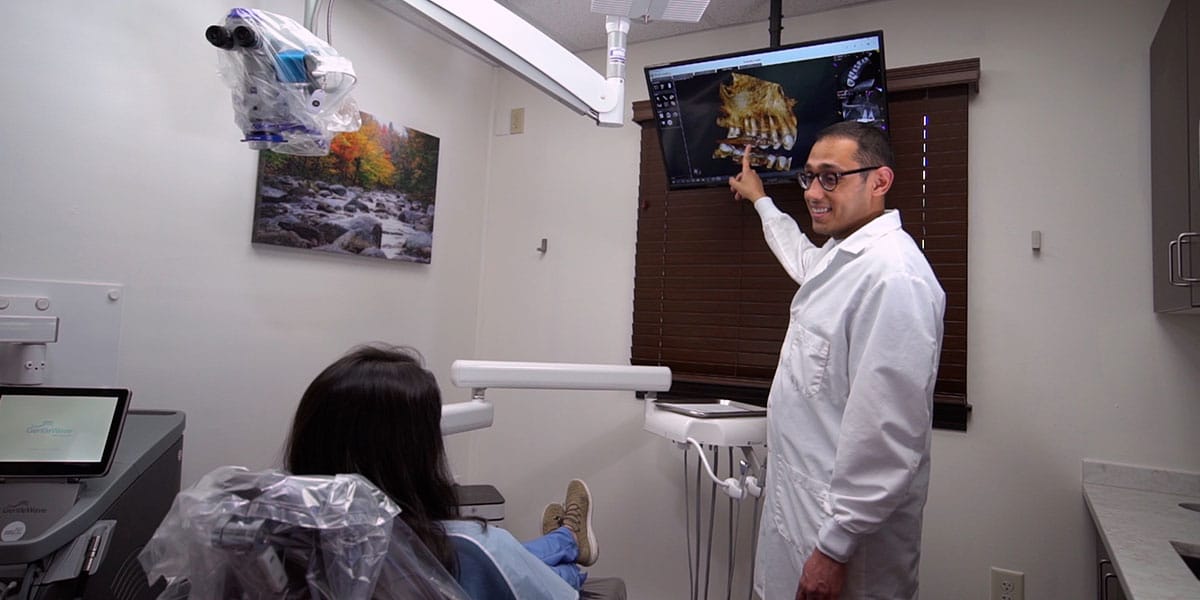
We perform root canal therapy to treat pulp tissue that is either inflamed or infected, which saves your natural tooth from needing to be extracted and replaced with an implant or bridge. Although it’s possible not to have any symptoms when a root canal is needed, most patients experience severe dental or facial pain when they have inflamed or infected pulp, as this tissue is rich in blood vessels and nerve endings, making it prone to sensitivity.
Unfortunately, many people come to our office with the expectation that root canal treatment is painful. In fact, the opposite is true—root canal therapy relieves dental pain and most patients leave feeling better than when they came in. Modern endodontic technology and local anesthesia mean that getting a root canal is usually no more painful than having a cavity filled by your dentist.
What Happens During a Root Canal Procedure
Before your root canal treatment begins, your tooth and the area surrounding are thoroughly numbed to ensure your comfort. If needed, dental sedation can be used to help you relax during your procedure. We will create a small opening in the crown of your tooth, which allows us to access the pulp chamber and roots. The pulp is removed, then the canals are shaped, cleaned, and disinfected. If infection is severe, we may medicate your tooth and complete your treatment in a second visit.
The next step in the process is to fill the canals and pulp chamber with a rubber-like material called gutta percha, which seals your tooth and prevents reinfection. A temporary restoration is placed to protect your tooth, then you’ll go to your dentist for a filling, crown, inlay, or onlay to permanently restore function, strength, and appearance to the treated tooth.
Once the local anesthesia wears off after your root canal treatment, you will feel some tenderness in the gum tissue surrounding the tooth and at the injection sites. This is typically mild and can be relieved with over-the-counter pain medications and cold compresses. Avoid chewing with the treated tooth as long as it’s sensitive or has a temporary restoration in place.
Frequently Asked Questions About Root Canals
How long does a root canal take?
Are you awake during a root canal?
What do you feel during a root canal?
Do you need a cap or crown after a root canal?
Are you looking for an endodontist in Hudson or Hooksett, NH? Contact us today to schedule an appointment.
